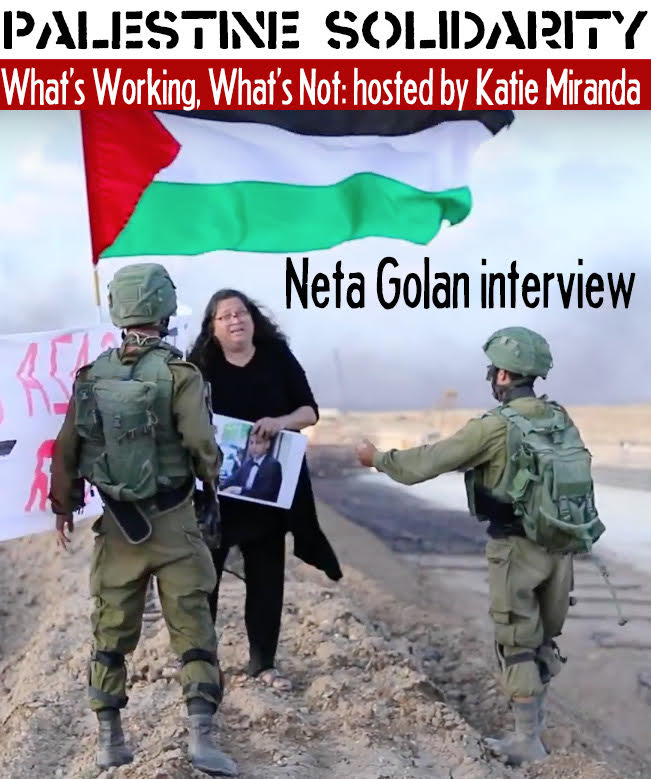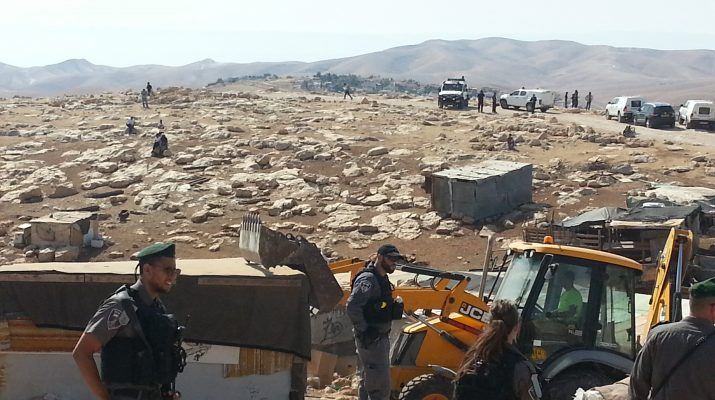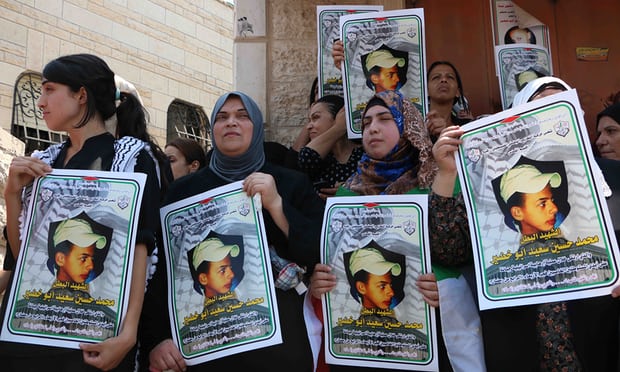Category: In the Media
-
Palestine: What’s Working, What’s Not
Katie Miranda I first arrived in East Jerusalem during a bitterly cold Palestinian winter in late 2005 to join the International Solidarity Movement. My first few nights were spent at a hostel in East Jerusalem. While at the hostel, I kept hearing people talking about one of the co-founders of ISM, Israeli activist Neta Golan.…
-
A day of demolitions: Houses destroyed by JCB vehicles at Abu Nuwar
By Amy Hall, Lydia Noon, Eliza Egret and Tom Anderson from Corporate Occupation Not content with continuous demolition of school classrooms, the Israeli authorities have now moved on to the demolition of homes in the Palestinian Bedouin community of Abu Nuwar. Around 8.30am on Wednesday 4 May, Corporate Occupation witnessed Israeli soldiers, border police and representatives…
-
The four year anniversary of the murder of Mohammed Abu Khdeir
The 2nd of July 2018 is four years to the day since the kidnapping and murder of Mohammed Abu Khdeir, a 16 year old Palestinian boy from Shu’fat in East Jerusalem. The shocking nature of his murder and its context, occurring only 6 days before Israeli bombing campaigns in Gaza, make it a painful memory…



